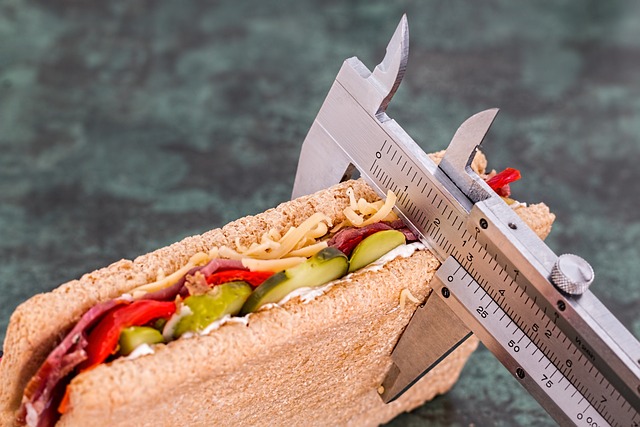I know you’re probably curious about what to eat before and after your workout, because let’s face it, proper nutrition can make a huge difference in your performance and recovery. Well, in this article, we’ve got you covered! We’ll provide you with some valuable information on the best types of foods to consume before and after your workouts. So, if you want to maximize your gains and fuel your body the right way, keep reading!
So, what exactly should you be eating before and after your workout? Don’t worry, we’ll break it down for you. From pre-workout snacks that will give you an energy boost to post-workout meals that will aid in muscle recovery, you’ll find all the tips you need right here. We’ll even throw in some delicious and nutritious recipe ideas to inspire your next pre- or post-workout meal. So, get ready to take your fitness and nutrition game to the next level – it’s time to fuel your workouts properly and make the most out of your training sessions!

This image is property of pixabay.com.
Importance of Fueling Your Workout
Pre-workout Fueling: Why it matters
Before you hit the gym or engage in any physical activity, it is crucial to fuel your body properly. Pre-workout fueling plays a significant role in maximizing your performance, enhancing endurance, and preventing muscle fatigue. By consuming the right nutrients before your workout, you can ensure that your body has the energy and stamina it needs to push through intense exercise sessions.
Post-workout Fueling: Why it matters
After an intense workout, your body needs to recover and replenish the nutrients it has lost. Post-workout fueling is essential for muscle recovery, reducing muscle soreness, and promoting muscle growth. It helps replenish glycogen stores, repair damaged tissues, and provide the necessary building blocks for muscle repair and growth. Neglecting proper post-workout nutrition can hinder your progress and delay your recovery.
Pre-workout Nutrition
Carbohydrates: The key energy source
Carbohydrates are the primary source of energy for your body. Consuming carbohydrates before your workout can provide you with the necessary fuel to power through your training session. Opt for complex carbohydrates like whole grains, brown rice, sweet potatoes, or oatmeal, as they provide a slow and steady release of energy. Avoid simple sugars that can cause a rapid spike in energy, followed by a crash.
Protein: Building blocks for muscle repair
Protein is essential for muscle repair and growth. It helps rebuild damaged tissues, supports the development of lean muscle mass, and aids in recovery. Including a moderate amount of protein in your pre-workout meal can enhance muscle protein synthesis, which is the process of building new muscle tissue. Good sources of pre-workout protein include chicken breast, Greek yogurt, eggs, or protein shakes.
Fats: Essential for energy balance
While carbohydrates are the primary energy source, including healthy fats in your pre-workout meal can provide additional energy and help you stay satiated. Opt for sources of unsaturated fats, such as avocado, nuts, or olive oil. These fats also assist in the absorption of fat-soluble vitamins and aid in joint lubrication.
Hydration
Staying hydrated during your workout
Proper hydration is vital for optimal performance and preventing dehydration. Dehydration can cause fatigue, muscle cramps, and a decrease in overall exercise performance. Before starting your workout, make sure to drink enough water to stay hydrated throughout your session. The exact amount of water you need depends on factors like your body weight, exercise duration, and intensity. A general guideline is to consume 16-20 ounces of water 2 hours before your workout.
Fluid intake before and after exercise
Apart from staying hydrated during your workout, it is equally crucial to consume enough fluids before and after exercise. To optimize your performance, drink 8-12 ounces of water 15-30 minutes before your workout and another 8-12 ounces immediately after it. This aids in replacing the fluids lost through sweat and helps your body recover more efficiently.
Pre-workout Meal Ideas
Eating a balance of carbs, protein, and fats
To create a well-rounded pre-workout meal, aim for a balance of carbohydrates, protein, and fats. This combination will provide sustained energy, support muscle repair, and promote overall workout performance. An example of a balanced pre-workout meal could be grilled chicken breast, brown rice, and steamed vegetables drizzled with olive oil.
Timing your pre-workout meal
The timing of your pre-workout meal is crucial to ensure optimal digestion and energy availability during your workout. Ideally, you should consume your pre-workout meal 1-3 hours before your workout. This allows adequate time for digestion while ensuring that the nutrients are readily available when you need them.

This image is property of pixabay.com.
Supplements for Pre-workout
Creatine: Boosting energy and muscle strength
Creatine is a popular supplement known for its ability to increase energy levels and enhance muscle strength. It works by replenishing ATP (adenosine triphosphate), the molecule responsible for providing energy to your muscles during intense exercise. Taking creatine before your workout can improve your performance, increase power output, and promote muscle growth.
Caffeine: Increasing alertness and endurance
Caffeine, found in coffee, tea, or pre-workout supplements, is known for its stimulant effects. Consuming caffeine before your workout can increase mental alertness, improve focus, and enhance endurance. It stimulates the central nervous system, leading to a temporary increase in energy levels and delaying fatigue.
Beta-Alanine: Enhancing athletic performance
Beta-alanine is an amino acid that helps increase levels of carnosine in your muscles. Carnosine acts as a buffer against lactic acid build-up, delaying muscle fatigue during high-intensity workouts. Taking beta-alanine before your workout can improve your endurance, increase time to exhaustion, and enhance overall athletic performance.
Post-workout Nutrition
Replenishing glycogen stores
After your workout, replenishing glycogen stores is crucial to restore your energy levels and promote recovery. Consuming carbohydrates post-workout helps restock glycogen levels, enabling your body to recover faster and have the necessary energy for the next training session. Opt for easily digestible carbohydrates like fruits, whole grains, or a sports drink.
Repairing and building muscle
During your workout, you create microscopic tears in your muscle fibers. Post-workout nutrition plays a vital role in repairing these muscles and promoting muscle growth. Consuming protein after your workout provides the necessary amino acids for muscle repair, synthesis, and recovery. Lean sources of protein like chicken, fish, tofu, or a protein shake can be beneficial.
Importance of post-workout protein
Including protein in your post-workout meal is essential for muscle protein synthesis, the process through which your body repairs and builds muscle tissue. Consuming protein after your workout elevates protein synthesis, helping your muscles recover faster and promoting muscle growth. Aim for around 20-30 grams of protein in your post-workout meal to maximize the benefits.

This image is property of pixabay.com.
Timing of Post-workout Meal
The anabolic window myth
The concept of an “anabolic window” refers to a specific period immediately after your workout when it is believed that the body is most receptive to nutrient uptake. However, recent research suggests that this window is more substantial than previously thought, and nutrients can be absorbed effectively within a few hours after exercise. While timing is essential, it is not necessary to consume your post-workout meal immediately.
Importance of nutrient timing
Although the anabolic window may not be as critical as once believed, nutrient timing still plays a role in optimizing recovery and muscle growth. Ideally, you should consume your post-workout meal within 1-2 hours after exercise to take advantage of the heightened nutrient uptake during this period. Timing your meal strategically ensures that your body has the necessary resources for efficient recovery.
Post-workout Meal Ideas
Balancing carbs, protein, and fats
Similar to pre-workout meals, post-workout meals should also contain a balance of carbohydrates, protein, and fats. This combination helps restore glycogen levels, repair damaged muscles, and provide essential nutrients for recovery. A post-workout meal could include grilled salmon, quinoa, and roasted vegetables drizzled with olive oil.
Incorporating fruits and vegetables
Fruits and vegetables are rich in vitamins, minerals, and antioxidants, making them an essential part of your post-workout nutrition. They aid in reducing inflammation, promoting recovery, and boosting overall health. Add a side of mixed berries or a leafy green salad to your post-workout meal for added nutritional benefits.
Snack options for convenience
If you find it challenging to consume a full meal after your workout, consider incorporating some convenient snack options. Greek yogurt with a banana, a protein bar, or a post-workout smoothie made with protein powder, fruits, and vegetables can provide the necessary nutrients in a convenient and portable form.

Supplements for Post-workout
Whey protein: Fast-acting source of amino acids
Whey protein is a widely used supplement for post-workout nutrition. It is quickly absorbed by the body, providing a high-quality source of amino acids necessary for muscle repair and growth. Whey protein shakes are a convenient and effective way to meet your post-workout protein needs.
BCAAs: Promoting muscle recovery
Branch-chain amino acids (BCAAs) are a combination of three essential amino acids – leucine, isoleucine, and valine. Consuming BCAAs after your workout can enhance muscle recovery, reduce muscle soreness, and promote muscle protein synthesis. BCAA supplements are available in powder or pill form.
Glutamine: Supporting muscle growth
Glutamine is a non-essential amino acid that plays a vital role in muscle growth and recovery. It helps prevent muscle breakdown, supports the immune system, and improves gut health. Supplementing with glutamine after your workout can help facilitate muscle recovery and support overall health.
Conclusion
The optimal nutrition before and after your workout can significantly impact your performance, recovery, and progress towards your fitness goals. By fueling your body with the right combination of carbohydrates, protein, fats, and fluids, you can optimize your energy levels, enhance endurance, promote muscle repair, and achieve the desired results from your workouts. Remember to tailor your fueling strategy to your individual needs and goals, considering factors such as the type of exercise, intensity, duration, and personal preferences. With proper nutrition, you can unlock your full potential and make the most of every workout.


